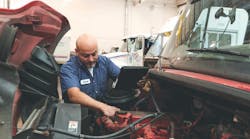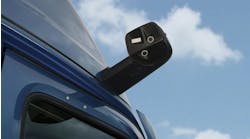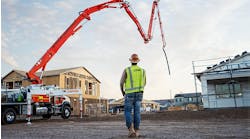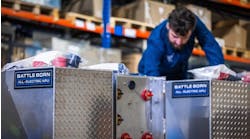All of the new technology on vehicles and in the garage has also increased the need for truck technician training.
“We need more sophisticated technicians,” said Troy Jergens, vice president of maintenance at Western Flyer Express, an Oklahoma City-based truckload carrier. “We’ve been training our technicians to diagnose faults and handle software upgrades, and we’re hiring computer-savvy people who are better able to take care of electronics systems.”
Jergens is also working to address electronics issues with the Technology & Maintenance Council (TMC) On-Board Vehicle Electronics Study Group.
“The increasing use of electronic systems on vehicles can be overwhelming for technicians, especially because there are multiple systems for each manufacturer so they have to be fluent in all diagnostic software,” he said.
Jack Werner, director of the automotive, heavy truck and CDL division at Western Technical College, noted that in a survey of 180 fleets, “the most important skills identified for entry-level technicians were for [preventative maintenance] and electronics.”
He said the TMC Educator Committee is trying to connect fleets with educators “so schools can change their curriculum to develop technicians with the skill sets they need.”
“The increase in electronic technology changes a fleet’s technician and training needs very quickly and is among the largest challenges we face,” said Winston Minchew, maintenance training manager at Old Dominion Freight Line and head of the TMC Professional Technician Development Committee.
Peter Savage Jr., director of fleet solutions at Clarke Power Services, said electronics are impacting maintenance practices for service providers as well.
“With every new technology, there is software and more sensors. Successful companies will be the ones that can keep their technicians prepared and on the cutting edge,” he said.
As trucks change, dealers are investing in their facilities, tooling, and training, noted Ray Grapsy, a dealer management consultant with American Truck Dealers.
“To the extent that truck dealers can improve their strength in these areas will be a key indicator of the industry’s ability to fully support advanced vehicle electronics,” he said.
“Technicians and training are already a top issue, with or without digital considerations,” Grapsy continued. “The advent of the digital shop will require identifying aptitude and behaviors in existing and upcoming technicians that support the digital environment. Training considerations include programs for comprehensive systems knowledge, in-depth use of computer diagnostics and digital support systems, and perhaps something just short of an electrical engineering degree.”
Part of the challenge of providing technicians with updated training is the time that it takes.
“The industry has used video- and computer-based training and virtual reality to train technicians,” said Matt Johnston, director of commercial experience for Design Interactive. “Now, augmented reality (AR) brings the best of these training solutions to the shop floor.”
Design Interactive’s Augmentor system allows suppliers to send the most recent training programs to fleets so technicians can access the content on the shop floor. Instead of being in front of a computer or viewing a video, these systems allow the technician to see exactly how an expert would have performed a particular procedure.
With training for new electronics such a focus, certifying that technicians have achieved the level of proficiency needed is also a consideration. For that reason, Automotive Service Excellence (ASE) is working with training curriculum developers and schools, as well as trainers and manufacturers, to update its certification exams, said Robert Cornwell, director of medium and heavy vehicle test development.
“A large percentage of the new content has to do with electronic technology, including sensors and controls for diesel engines and transmissions,” Cornwell said. “We’re updating the tests as often as we can, but we also have to consider that technicians taking these tests do not all get new training right away. It’s difficult to test them too soon on new material if they haven’t had the opportunity to work on those systems.”




